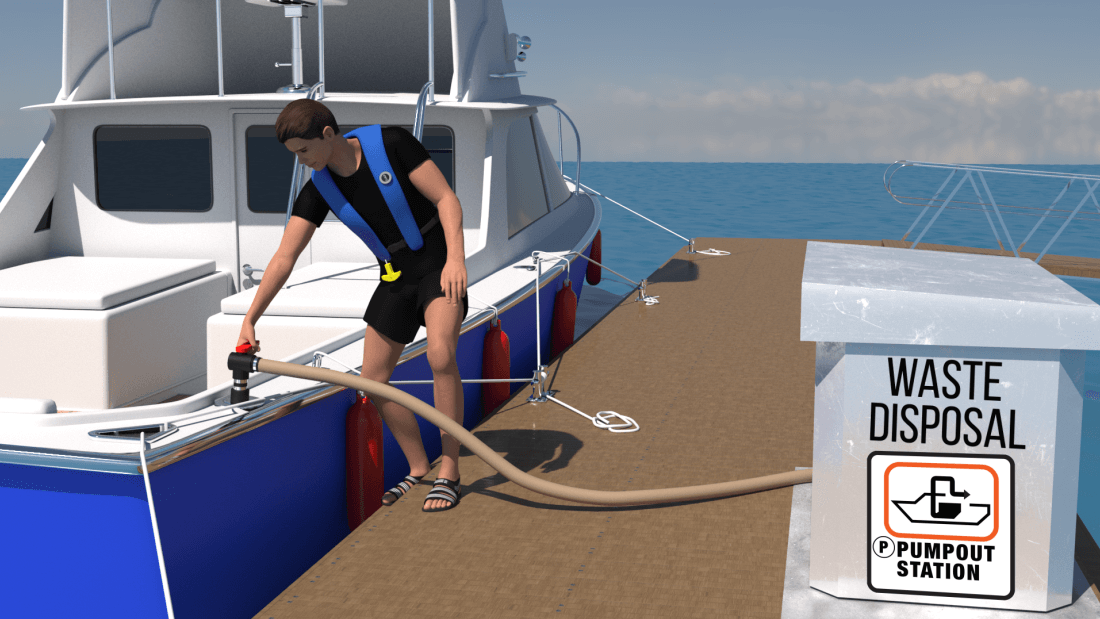Disposal of Garbage at sea Discharge of Trash

The U.S. Coast Guard regulations prohibit dumping of plastic refuse, and garbage mixed with plastic, into any waters. These restrictions apply to all U.S. watercraft where ever they operate (except waters under the exclusive jurisdiction of a State), and any foreign boats operating in U.S. waters out to and including the Exclusive Economic Zone (200 miles).
Your Obligations
Do not dispose of plastic in any waters. Learn and conform to the regulations regarding disposal of other garbage. For instance, it is illegal within three nautical miles to operate a garbage disposal in a galley sink if it discharges that garbage - even ground up garbage. To make it easier to comply, you might want to separate garbage according to the disposal limitations.
State and local regulations may further restrict the disposal of garbage. Make sure you know the regulations covering the waters upon which you will be boating.
Garbage Disposal Placard
Boats 26 feet and longer must display a "Save Our Seas" Garbage Disposal Placard that outlines the rules of dumping waste offshore. These placards may be purchased from local marinas, boat dealers, and marine equipment suppliers.
Waste Management Plans
U.S. recreational boats 40 feet or longer and equipped with a galley and berthing are required to carry a Waste Management Plan if the watercraft operates, or is certified to operate, beyond 3 nautical miles from shore.
The Waste Management Plan, identifying the boat's name and homeport, should be posted and include directives to all passengers and/or crew about:
- Discharge of sewage and hazardous substances.
- Discharge of garbage and other food waste.
- Disposal of plastics, bottles, and cans.
- Applicable placards for additional information.
- Advising the captain in case of oily discharges or diesel spills.
